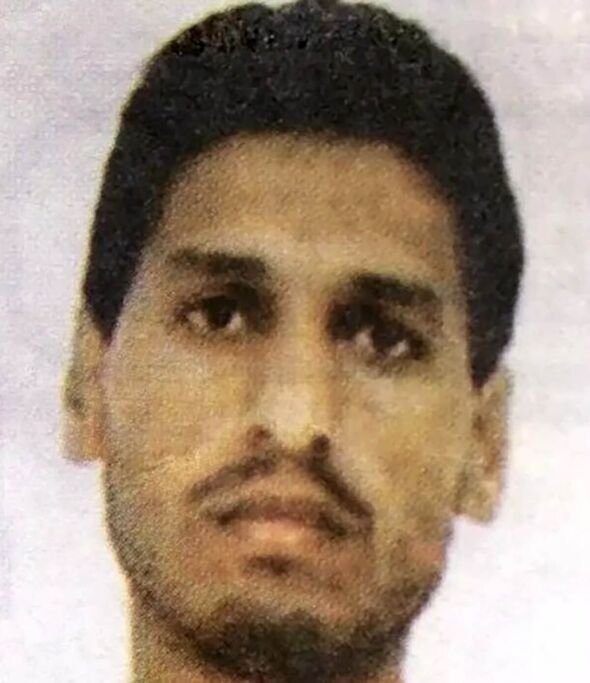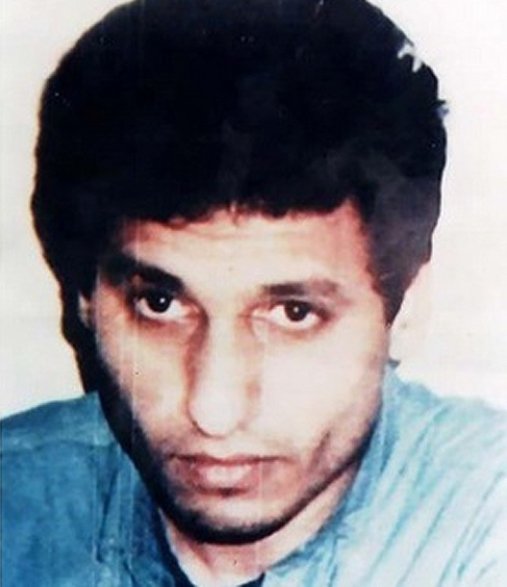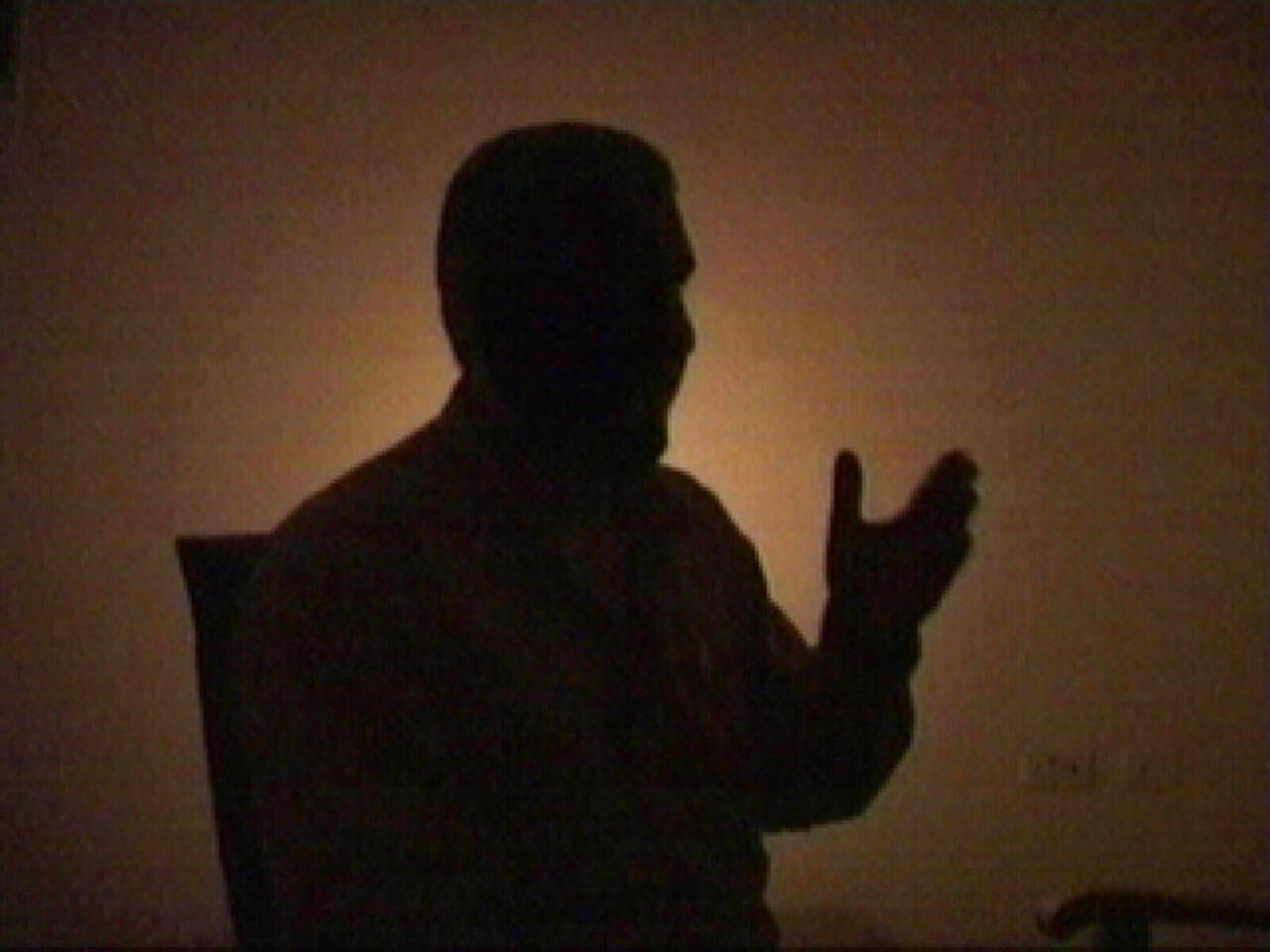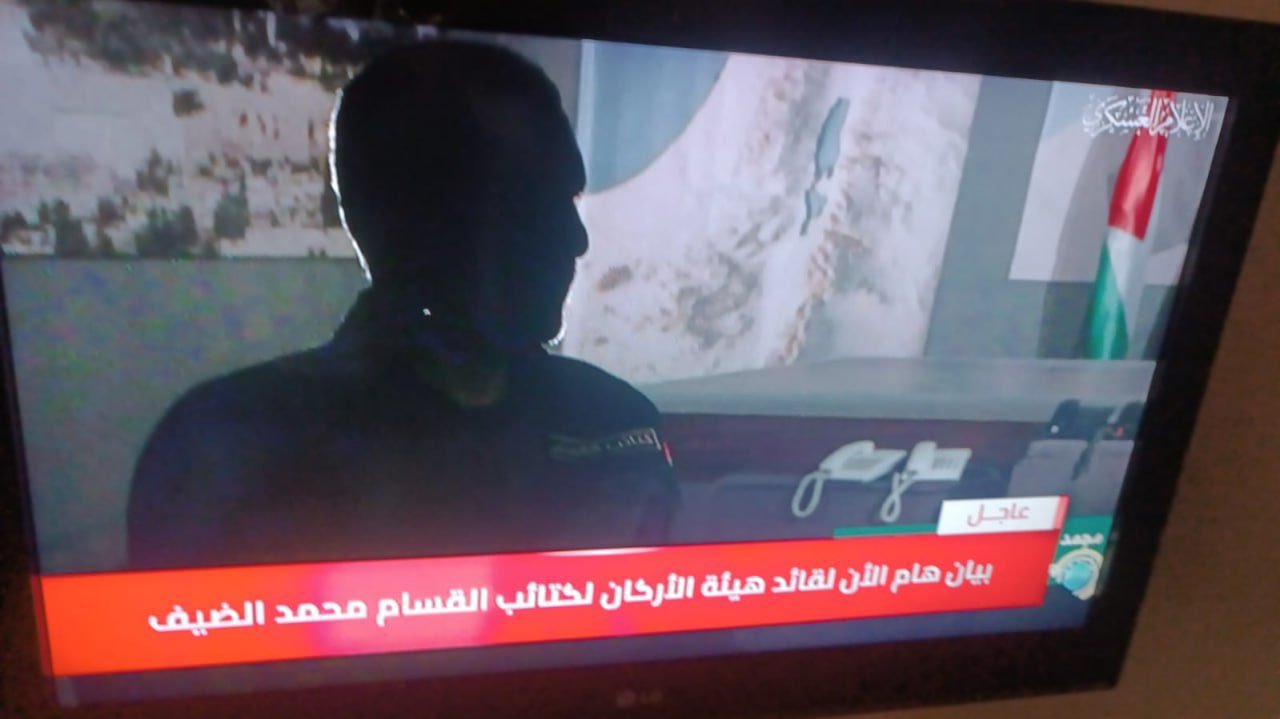You’ve Never Heard of Israel’s Most Wanted Man
Meet Mohammad Deif, also known as “The Cat With Nine Lives.”
“All war is cruel and the only way to win against superior force is by ruse and trickery.” —General Georgios Grivas, Cypriot guerrilla leader
On the first day of the November ceasefire of the Israel-Hamas War, crowds of Gazans poured into the street to honor one name. “With souls and blood, we redeem you, Deif,” they chanted. At past summer camps run by Hamas, Palestinian teenagers ran through obstacle courses, practiced hostage-taking, and chanted “We are Mohammad Deif’s Men!” In one 2014 poll, Deif was voted more popular than either of the actual Hamas leaders at the time. It was a black silhouette of Deif who announced the October 7 attacks on Hamas’ TV channel, and it was Deif is considered the “mastermind” of the attacks.
Deif is behind the most significant terrorist attack since 9/11, but chances are, you’ve never heard of him. Deif may be the Israeli Defense Forces’ #1 military target, but news coverage of him pales in comparison to Yehya Sinwar, Hamas’ on-the-ground political leader, or Ismail Haniyeh and Khaled Mashal, the heads of Hamas’ politburo who live in Qatar. But why?
Perhaps because Deif’s name itself is a weapon.
Palestinian teenagers in a summer camp run by Hamas pledging allegiance to Deif.
Only two actual images of Mohammad Deif exist. The first was taken in the 80s, during his early 20s. The second was taken by the IDF in 1990, during his time in Israeli detention. Since then, and on October 7, he has appeared as a mask or shadow.
Yet in Gaza, his stature casts far more than a shadow. Since 2002, Deif has been the commander of the Al-Qassam Brigades, the military wing of Hamas; at least one Hamas source states that the October 7 attacks were essentially “a military takeover of Hamas.” Similar to the fight over the Al-Aqsa mosque complex in Jerusalem, which Countere has covered before, Deif is a central component to this war who has received little attention. Deif is arguably the most important man on the ground in Gaza right now; Israeli leaders have admitted that the objective of their current southern offensive into Khan Yhounis, Deif’s hometown, is to capture or kill senior Hamas leaders, specifically Deif and Sinwar.
Amid signs of Hamas’ sagging popularity in the strip, Deif is as beloved as ever. Deif is like a “god to the young,” says Mkhaimar Abusada, professor of politics at Gaza’s Al-Azhar University. Part of this is due to Deif’s reputation as a hardline yet humble purist, a leader who doesn’t live in luxury hotels in Qatar but among the people of Gaza. Part of this is also because of his inhuman ability to survive Israeli assassination attempts. Since joining Hamas in the 80s, Deif has survived at least seven assassination attempts, the most recent occurring in 2021. His body bears the physical scars of his cause: he has lost an eye, as well as one or several limbs. He is believed to be partially paralyzed, to possibly travel in a wheelchair, and to be disfigured.
In Israel, this has given him the nickname “The Cat With Nine Lives.” His adopted surname, “Deif,” means “Guest” in Arabic—a nod to his habit of staying in a different home every night.
One glimpse into how the IDF views Deif is in a 52-card deck they recently distributed to soldiers in Gaza. The deck contains Hamas’ most high-value targets: the Queen of Hearts is Sinwar, the Jack is Sinwar’s brother, the Aces are Ismail Haniyeh and Khaled Mashal.
And the Joker? None other than Deif.
A card deck distributed by Israel featuring Hamas targets.
Much about Deif’s life is unknown or unconfirmed. His full name is Mohammed Diab Ibrahim al-Masri. According to one report, he was born in the Khan Younis refugee camp in southern Gaza in 1965. He earned a degree in science from the Islamic University in Gaza. During his time in university, he performed onstage in comedies and set up a theater group named The Returners.
Deif joined Hamas around the time of the First Intifada in 1987. In 1989, he was arrested by Israel and spent 16 months in detention. After rejoining Hamas and learning bomb-making techniques from Yehya “The Engineer” Ayyash, he planned numerous suicide bombings, including the 1996 Jaffa Road bus bombings. By 1995, he was on Israel’s most-wanted list of terrorists.
In 2002, during the Second Intifada, Deif was promoted to head of Hamas’ military. He has been responsible for the group’s military strategy ever since, developing their “below and above” military doctrine, meaning using tunnels and firing rockets to attack Israel. To evade capture, he travels in disguises, uses different names and identities, and spends most of his time in tunnels. He has succeeded, but barely: Deif not only lost his eye and limbs, but also a wife and two children in a 2014 airstrike.
Yet Deif’s continued survival “is a long-lasting stain on Israel's reputation of taking down designated targets," says Jacob Eriksson, a conflict specialist at the University of York. The IDF and the Mossad, Israel’s intelligence agency, pride themselves on their ability to assassinate enemies overseas; Deif, who lives in their backyard, is an ugly reminder of their limitations. Many would prefer for him to be, if not dead, forgotten.
Deif’s story conjures memories of Hannibal, the one-eyed Carthaginian general who fought against Rome. Hannibal’s hatred for Romans ran blood-deep; when he was nine years old, he swore an oath to his father to “always be an enemy of Rome and anyone who supports her.” After the Battle of Cannae, in which Hannibal’s army massacred 20% of Rome’s male fighting population in one day, Romans shrieked the immortal phrase “Hannibal ante portas!” (“Hannibal is at the gates!”)
Deif is the “Hannibal of Hamas”: a one-eyed general and sworn enemy who has brought Israel to her darkest hour.
Deif throughout the years, including his TV appearance on October 7 (right).
Understanding Deif’s life is essential to understanding this war. While it’s hard to see a Gazan politician ordering the kind of insane, ultimately suicidal attack that October 7 was, it makes sense for a man living underground with a bunker mentality and nothing to lose.
No doubt a group of highly trained IDF specialists are working overtime to locate and eliminate Deif. Palestinian sources have stated that airstrikes following the October 7 attack destroyed Deif’s father’s home and killed Deif’s brother and two family members.
For this war will not be considered “won” by Israel until Deif is dead. The IDF has forsworn diplomacy in favor of a military “shock and awe” strategy to physically demonstrate to the Gazans that victory is hopeless, à la the Allies’ strategy against the Germans or Japanese in WWII—who also demonstrated religious fervor to their cause until their leader surrendered or killed himself. (The Allies then helped rebuild Japan and Germany).
As long as Deif remains alive, Hamas remains alive. The most important power that a guerrilla has is the ability to inspire this mindset in others—and Deif’s name will continue to inspire young Palestinian fighters until he ceases to be “The Cat With Nine Lives.” According to a recent poll, 74% of Gazans still believe that victory is inevitable; only through eliminating Deif can the IDF begin to make its case that victory is futile.
What will be Deif’s fate? We can look at history. According to one account, in his old age, Hannibal found himself surrounded by Roman enemies at a palace in modern-day Turkey. Rather than surrender, he killed himself.
Countere is 100% independent. Help support our work, and vote on future stories, on Patreon.
Articles You May Enjoy
A Red Heifer Is the Secret to Understanding the Israel-Hamas War




